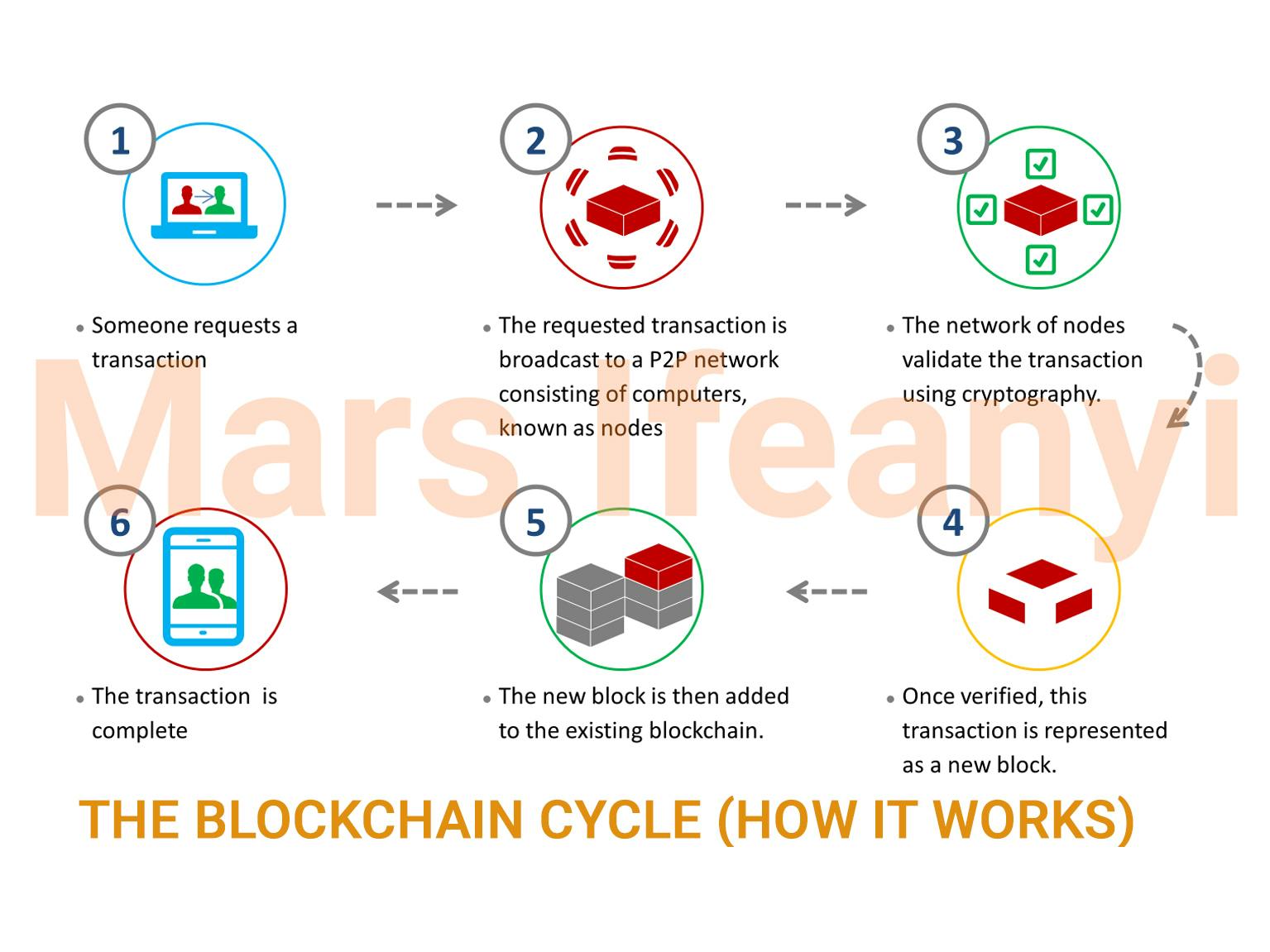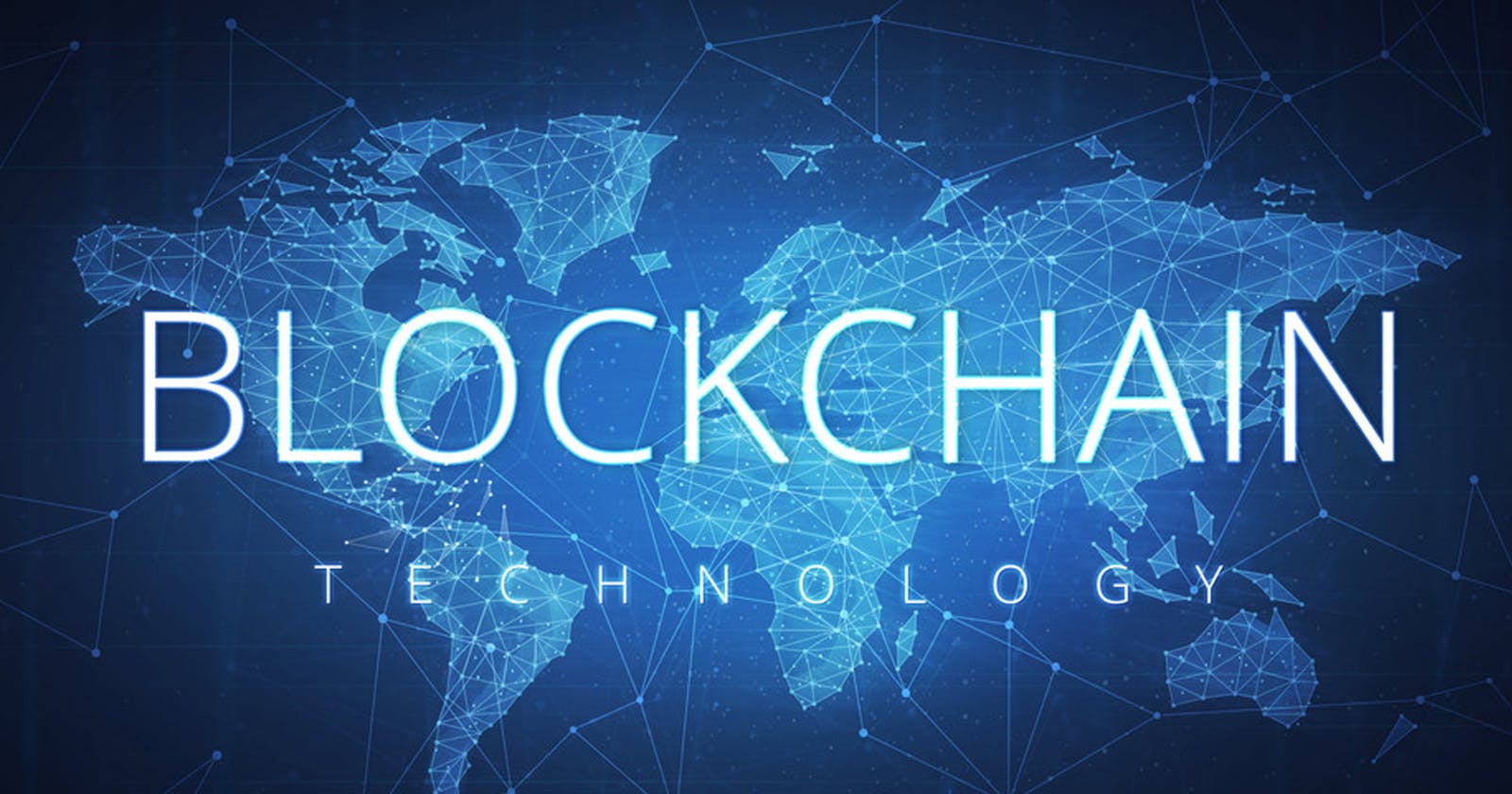
Blockchain is a Global, Decentralized, and Distributed transactional database/ ledger that records the provenance of a digital asset. It is Highly Transparent, Secure, and Immutable.
“Show me the industry that lacks Trust, Transparency, Security, and Privacy and I will show you the use case of blockchain technology in that industry and the Future of Blockchain technology”.
Crypto-Currency is just the first application of blockchain to Banking (Finance), but the blockchain technology isn’t just for Crypto Space. Crypto is the Energy/Native Currency for the Web3 Economy, while BlockChain technology is the hallmark (Heart/Power House) of all. Blockchain technology is a revolutionary technology that will disrupt any industry you can think of where Trust, Transparency, Security, and Privacy is of utmost importance.
Let's look at the use cases of Blockchain Technology and the industries that blockchain is disrupting and will disrupt in the future, so as to position ourselves for them
1: Government Transparent Budgeting:
Corruption Perceptions Index shows that two-thirds of the countries are considered highly corrupt. A potential application of blockchain technology will/is bringing transparency to the government’s budgeting decisions by making them accessible to the public (Public Blockchain). This could lead the government to act more responsibly and avoid waste of public funds or embezzlement and ensure the adequate allocation of the released budgeted funds for the execution of projects.
2: Finance (Investment Management)
Blockchain offers various capabilities to improve investment management processes by improving:
- Collaboration: By enabling everyone to access a single source of truth easily (Trust is the Fundamental currency of commerce)
- Transaction Validation: Transparency of the blockchain supports each party to easily validate transactions
- Data Security: Blockchain Improves the overall data security since data is stored in immutable records
3: Cross-Border Transactions:
Blockchain is a global transactional database. Globalization leads organizations to make more cross-border transactions seamlessly. Blockchain has the potential to enable cheap, secure, efficient payments in cross-border transactions by removing the need for verification by third parties (intermediaries) and beating processing times for traditional bank transfers. Multiple organizations/Defi companies or start-ups are taking advantage of blockchain to enable cross-border transactions.
4: Digital Voting System for Elections
Research shows that in most countries “It’s not the people who vote at the polling unit during elections that counts, it’s the people who count the votes”. The reliability of the voting process has been a problem since the beginning of democracy. Blockchain technology can decentralize the voting process so that elections can happen securely with transparency because, in a decentralized system, there is no single point of weakness/failure. With a decentralized system of Voting, Individuals who are eligible will receive a token that allows them to vote only once at the comfort of their home and each vote is stored as a node in the blockchain. This will increase transparency in the election results and save life and crisis during elections.
5: Internet of things (IoT) and Internet of Everything (IoE):
Internet of things (IoT) and Internet of Everything (IoE) are physical objects that are embedded with sensors, processing ability, software, and other technologies that connect and exchange data with other devices and systems over the Internet or other communications networks. Security and Privacy have been of great concern about the risks in the growth of IoT and IoE, technologies, and products. The Internet of things (IoT) and Internet of Everything (IoE) are made up of Smart appliances. By storing the data collected from these devices in blockchain, users can make the data immutable and increase the difficulty of tampering with services by cyber criminals.
With Blockchain Technology each device will have a unique identifier and users hold a password accessible via their smartphones. This password enables users to manage each device knowing that all transactions and messages are encrypted (Cryptograpically) and going through a secured network. Blockchain offers digitization of assets with IoT and IoE monitoring sensors so that organizations can label their assets and provide a transparent tracking system, which helps to identify the location and condition of items.
6: Wills and Inheritances
Blockchain can be used to create digital wills and signatures as a transparent and legally attested and prevents tampering of wills. Testators (trustees) can distribute their assets to beneficiaries (inheritors) via a crypto-will network that can be accessed by related parties.
This can be built in the form of a smart contract that can be automatically executed after the death of the testator (When consensus has been met ie upon confirmation of the trustee’s passing away). Digital Wills and Signature will remove the challenges of verifying the deceased’s actual death, will-related litigation often involves challenges to the “genuineness” of a will, that is, whether the legal interpretation aligns with the deceased’s intentions. Thus blockchain technology will infuse the Trust, and make it easier to identify factual information, provide verifiable transaction data, and dismiss claims that are without merit.
7: CrowdFunding:
The decentralized nature of Blockchain allows Decentralized Autonomous Organizations, DAOs (Decentralized Community) which can be used to crowdsource and raise funds in a transparent way and help the members or a member of the community build a project and create solutions.
8: Loan and Credit:
With the application of blockchain technology to Decentralized Finance (Defi), alternative lending now offers a cheaper, more efficient, and more secure way of making personal loans to a broader pool of consumers. With a cryptographically secure, decentralized registry of historical payments, consumers could apply for loans based on a global credit score.
9: Insurance and Property Management
Blockchain-based applications are deployed/used in the insurance industry to improve operational efficiency, drive down costs, increase speed to market, and provide better customer experiences. Blockchain technology creates a single source of truth (data received and stored are immutable on the blockchain network) for transactions between parties has the potential to significantly drive down processing time and costs for insurance companies.
10: Automotive Manufacturing (Travel & Mobility)
In the Automotive/Automobile Industry, blockchain technology can be deployed to track ownership of physical assets like cars with a tamper-proof, neutral, and resilient system, since paper records are prone to forgery and/or physical degradation, and centralized databases may be subject to hacking, human error, and/or tampering, blockchains are immutable and have no single entity controlling the ledger.
In the Manufacturing Industry, Blockchains could be used to track parts in a supply chain and weed out those that are counterfeit and could enable targeted recalls on supplies. The Mobility Open Blockchain Initiative (MOBI), a consortium that includes automakers like Ford, BMW, Honda, and GM, has been working on a vehicle and parts tracking initiative. Its Vehicle Identity (VID) Standard initiative provides “birth certificates” for vehicles, tracing maintenance history and vehicle registration even across borders in a shared ledger.
11: Car Leasing and Sells:
The experience of leasing, buying, or selling a vehicle is a notoriously fragmented process for stakeholders on all sides of a transaction, but blockchain could change that. Using Blockchain Technology to store “birth certificates” for vehicles, tracing maintenance history and vehicle registration, across borders in a shared ledger, if you want to lease or buy a new or fairly used car, you can actually know every single detail about the car and avoid fraud. This will also reduce costs (commissions) incurred by intermediaries (third parties) and consultation of personnel/car agencies
12: Trucking, Shipment control, and Monitor of Produced Mineral Resources:
Blockchain technology can be deployed in the Oil producing countries like Nigeria, Sudan, Libya, etc, to keep track of the produced and transported crude oils. The trucks/tankers carrying the oil barrels can be embedded with IoT and IoE sensors which feed the blockchain network with data (Blockchain Oracles). With this, the management can be sure that the same quantity of oil is produced and transported, as the data recorded at the point of production can’t be altered (blockchain is immutable), which will infuse trust and transparency in our oil and gas industries. Deploying Blockchain will help to improve transactions, shipment tracking, and fleet management, as well as protect assets and increase fleet efficiency
13: Hotel and Reservations (Hospitality):
Research shows that large hotel chains lose 10% to 15% of their total revenue in the form of commissions paid to third-party booking services. The Trust and Transparent nature of Blockchain technology can help cut out the middlemen and their huge commissions, encouraging direct provider-to-consumer interaction and reducing costs.
14: Real Estates:
Research shows that the pain points for buying and selling property include a lack of transparency during and after transactions, copious amounts of paperwork, possible fraud, and errors in public records. Blockchain can be deployed and offers a way to reduce the need for paper-based record keeping and speed up transactions, thus helping stakeholders improve efficiency and reduce transaction costs on all sides of the transaction. Real estate blockchain applications can help record, track, and transfer land titles, property deeds, liens, and more, and can help ensure that all documents are accurate and verifiable.
15: E-Commerce:
Blockchain technology has the potential to transform e-commerce by lowering transaction costs and tightening transaction security. E-commerce giants such as Walmart, Amazon, and Alibaba have begun exploring blockchain technology. In March 2020 Alibaba filed a patent for a blockchain-based transaction system in Brazil. When it comes to global trade, blockchain could play a helpful role in traceability, ensuring proof of delivery, and securely tracking contract details without the risk of data being altered or tampered with.
16: Health Information Exchange (Health):
Healthcare institutions suffer from an inability to securely share data across platforms. Better data collaboration between providers could ultimately mean more accurate diagnoses, more effective treatments, and more cost cost-effective care. The use of blockchain technology could allow hospitals, payers, and other parties in the healthcare value chain to share access to their networks without compromising data security and integrity.
The list of industries blockchain is disrupting or will disrupt are endless, but I will like to stop this write-up.
Some Other Areas and More:
- Research & clinical trials
- Pharmacy and Alternative medicine
- Media and Entertainment
- Law enforcement
- Federal mail (Saves Time for Postal workers)
- Public transportation
- Gift card & loyalty programs -Waste management
- Energy management
- Sports
- Food & beverage
- And more ……..
SUMMARY:
Blockchain is a Global, Decentralized, and Distributed transactional database/ ledger that records the provenance of a digital asset. It is Highly Transparent, Secure, and Immutable. Show me the industry that lacks Trust, Transparency, Security, and Privacy and I will show you the use case of blockchain technology in that industry.
Hint: In each of the industries where blockchain is applied there are different Crypto-Currencies dedicated to them, if you are a Crypto Trader (Like me), check out the Categories section (Ecosystems) in Cornmarket Cap (coinmarketcap.com/cryptocurrency-category) or Coingecko (coingecko.com/en/categories) for more information on the Use cases of Blockchain technology. Cryptos are grouped into Ecosystems based on Use Cases.
